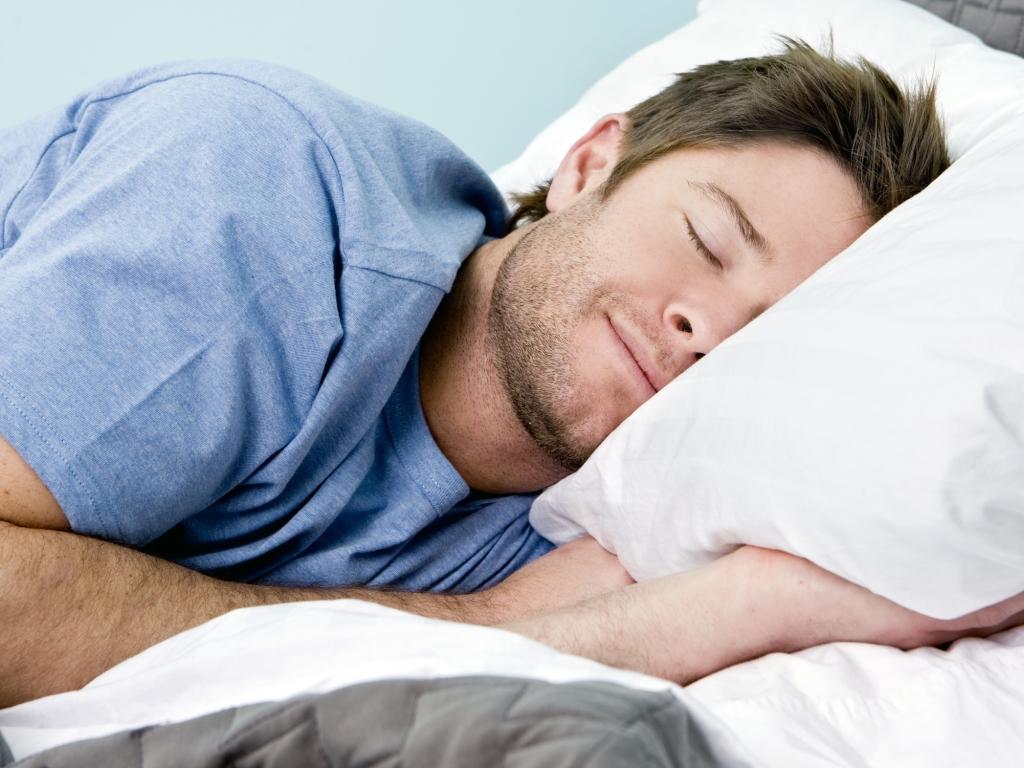
10 Simple Tips to Sleep Better at Night
Having a sound night of sleep gets a deep impact on the way you feel throughout the day and your productivity, feeling worn out by noon might be a well indicative you’re not resting enough.
By getting to sleep better at night your energy will be higher, your mood will be boosted and, of course for a little harmless vanity, your under-eye circles will be diminished. Now you may not know this, but even your daily routine can affect the way you sleep, and by making some changes and adjustments to it you can make the world in difference on how well you rest.
This will improve your general health and well-being and that’s why I’ve put down this 10 best simple tips to sleep better at night that the experts have come up with:
1. Stick to a Sleeping Schedule
Many experts have this one in common as the first tip, sync your sleep pattern to your biological internal clock to get a regular restful night of sleep and you’ll be refreshed by the morning. Consistency on your going to sleep and waking hours alike reinforces this process, you’ll find the time necessary for your own body since not all metabolisms are the same, an adult below 65 years old requires somewhere between 7 to 9 hours of sleep. Now you really shouldn’t allow yourself a nap if that’s going to affect the time you are going to sleep that day (as it generally does), however if you need to compensate for some lack of sleep from the day before you can take a short time to do so, just be careful since napping could worsen your insomnia.
2. Avoid Heavy Meals Right Before Bedtime
Yes I know it is so hard to stop overeating, and you have naturally felt that somnolence right after a heavy meal, but that’s because your body sends more blood to the digestive system, away from your brain. Now you’re wondering, well.. if that’s the case, shouldn’t it help me sleep better at night? And the actual answer is that you could fall asleep because of the slowing down of your body and brain processes during digestion, however a nap or a full night of sleep in these conditions aren’t optimal since this kind of sleep tends to be lacking of deep rest and in discomfort. People tested for this heavy-meal-right-before-bedtime situation showed to have less deep-sleep periods during the night.
Reflux after a heavy meal is also an issue and a “full throttle” digestion is not exactly a relaxed body condition to help you cope with sleep, sometimes you can even experience nightmares out of this discomfort. So because of all of this you should be taking dinner at least a couple hours before you go to sleep, thus even a somewhat abundant meal won’t make too much of a harm compared to taking it right before heading to bed. Going to bed on an empty stomach is also a bad idea, this feeling will make you discomforted you’ll have a hard time to fall asleep, I tend to wake up in the middle of the night because of this mistake if too many hours have passed since my last meal.
3. Avoid Tobacco and Alcohol
You should consider to stop drinking altogether or at least nearest your sleep time, yes you’ve heard that alcohol can make you fall asleep fast and a speeding train on your head wouldn’t wake you up after a few pints. The sleep quality you get after some drinking is shallow and often restless. Experts say that you might skip the “Rapid Eye Movement” stage before getting to the deep-sleep phase if you have ingested even just couple of drinks. Once the effect of the alcohol drains away you go back to the Rapid Eye Movement stage and usually wake up before you planned to do so and tired. If you are going to drink then allow some time for the effect of alcohol to wear off before you hit the pillow, how much? well that is really highly variable on every organism.
Your body can process somewhere around a beer per hour but that’s a very rough estimate, will depend on the way you drink, what you have eaten, your age, gender, etc. Tobacco is also a very well known addiction factor that cause insomnia and/or changes in your sleep pattern, so stop smoking now, again it makes you spend less time on the deep-sleep phase and more on the light-sleep one. When you wake up after a night of smoking you hardly ever feel “refreshed” or “restored” by next morning Although you feel relaxed when smoking because of the nicotine effect, cigarettes are stimulating to your organism voiding the relax state you need to fall asleep deeply. Quitting smoking will have a direct and almost instant impact on the quality of your sleep, so consider it a plus to the other health benefits of getting rid of that addiction besides improved general health, bettering of breathing problems and more energy during the day along many others.
4. Get Relaxed and Comfortable
This recommendation might seem obvious but you could be overseeing some details that might be preventing you to get the sound night of rest you are looking for. So for starters, get a pleasant place to be and sleep first, disorganized places are less than ideal for the time you are too tired to be wondering where the pillow is below that mountain of bed clothing, yes! make your bed. You can also help the mood and your body by using scents, an aromatherapy diffuser will help you relax after a tiring day, the most common scents used for this are: lavender, chamomile, jasmine and vanilla, just place a few drops of them on your pillow and enjoy.
Unwind with the help of warm relaxing beverages like chamomile tea, milk (the less sugar the better) or cocoa with semi-skimmed milk is also a good idea. It is also known by the experts that a fresh room temperature is essential for a good night of sleep, since your body is trying to get to a certain set temperature for its rest, and it is usually lower than what it is when you are awake. It is really important to get a comfortable temperature, just not too hot nor too cold in your dorm room so your body can reach that sleeping point.
5. Create a Routine
By creating a routine you are helping your body “understand” that bed time is approaching, stay away from activities that are exciting, stressing or cause any kind of anxiety close to your bed time. Even better, try relaxing activities like reading a light read book (physical, not e-books since screen light interferes with the process), listen to soothing music or even taking a warm bath will kick-start this relaxation process before it is time to sleep, do this “cool-down” activities somewhere around 60 minutes prior going to bed.
Try to get a separate space for working or studying away from the bed (get a desk), this will avoid the conditioning of your mind into believing that the bed is a stressful place to be in, use it to sleep and get your body feel it is what it’s meant for.
6. Diminish Lighting Exposure
Well no surprise that lighting in your dorm room can make or break your sleeping process, and to make things simpler, the darker the room the better, you can read your book in dim light for example or get those blackout curtains that precisely block all light possible from the outside. Just came to my mind the memory when I was visiting a city nearby and the hotel room had those kind of curtains, I overslept for 3 hours thinking it was earlier, not realizing how well the light was blocked out, restful yes, but don’t forget to set your alarm clock.
Simply closing your eyes doesn’t get the trick done since light can go through your eyelids, turn off every equipment producing light (like those alarm clocks with giant led displays, I mean, what’s the purpose of the ultra-bright display? not letting you fall asleep?), TV “off” lights, etc. Another hard to follow but utter important tip for those technology addicts like myself: Stop using the TV, laptop, mobile phone, etc. at least one hour before bed , that kind of light can and will disrupt the melatonin production process in the pineal gland provoking some level of sleeplessness.

7. Exercise Daily (Not Right Before Bed)
A daily dose of exercise during the day will make wonders for your health on many aspects even when the time to go to bed comes. As little as a 30 minutes workout will suffice, you don’t even need to do it all 30 minutes straight and you can fraction it on two 15 minutes or three 10 minutes sessions throughout the day. This period of exercise (aerobic recommended) will lift your body temperature and the effect will last for several hours (somewhere between 4 or 5 hours) later to be decreased to lower than if you had not exercised in the first place.
The lowering of you body temperature is a key element to get a good night of sleep. Now you should not exercise too near to your bedtime since it will stimulate and energize your body and you’ll get trouble to get the relaxed state required to sleep even if you are tired by the effort, you can do it early afternoon if it gets complicated to do so in the mornings.
8. Use White Noise
White noise use although might seem like counter intuitive, works because it tricks the brain into not paying attention to the external noises that might be disrupting your hours of sleep, real noises like the sirens, dog barking or even neighbors. This sort of therapy is widely used to help induce sleep and you can purchase a white noise generator specifically designed for this purpose, the static on the radio in-between stations is also a good source of white noise experts say although I find it difficult to relax to it. If you are like me and prefer relaxing nature sounds or music (colloquially considered also white noise) you can tune a sleep relaxation station on the internet radio, sounds like ocean waves or rain sounds also serve the same purpose, the main idea is to get a sound source which doesn’t have steep changes in rhythm or beat sounds.
9. Reduce Stress Along the Day
According to the American Psychosomatic Society, stress related issues affect the quality of your sleep derived from the heart rate changes it provokes, it was also observed in studies an increase in mortality rates due to this same stress and poor sleep factors. You can tap on this problem by trying to figure out what it is that provokes it , and by addressing those problems accordingly, write a diary and note the factors which could be involved, like work stress or a medical condition. Yet again, a healthy diet and exercise daily program could help you tremendously with this issues, so from now on you should focus on releasing that stress before bedtime or even better avoiding an excess of it altogether.
10. Pay Attention to your Mattress and Pillow
Sure this is by no means the least important of all the above mentioned aspects, the physical part of the “going to bed” task is of major relevance and that’s why I have included it here. Now I won’t be able to suggest you any specific kind of mattress since that’s a very personal choice, and what you consider the “right” kind might not be suitable for others, however if you have slept on a hotel, a friend’s house or with your relatives you might really get an idea by now. What I do recommend you to do is to pay attention to this factor, if you notice it needs to be changed then go shop for one.
Remember that not necessarily a high price tag for a “high-tech” mattress equals a good rest, what is it better to get? a soft, medium or firm one? Well again, some people rest better on a firm kind and others on a softer one. I personally wake up with neck pain when sleeping in a soft mattress so I have chosen the firmer ones when I have bought them, it has been the world in difference for a night of good rest. It can also depend on your physical condition, remember to visit your medic who can help you chose better according to your condition, the main idea here is that you get conscious that this is an important factor to consider, if your’s have lost its shape or function due to its years in service you should really consider buying another.
Personal preference applies similarly to pillows , nevertheless in this case you can consider how you usually sleep, if you lie on your back you need a somewhat thin pillow, but if you sleep on your side, a firmer one would be better (you can add another thin one if you switch from one to another) and if you sleep on your stomach then an almost flat one would be best.
Conclusion
These are the most relevant recommendations I found and the ones I follow myself, so as a summary, avoid stress along the day through relaxing and exercising, avoid consuming stimulants or depressants like coffee, alcohol or cigarettes before night time and go to sleep in an inviting but pretty dark place, make it your sleep sanctuary. You can also help yourself by being creative with the help of aromatherapy or audio-therapy, but don’t forget these are only general help recommendations so go to visit your doctor if this issue has prevailed for more than a few days of bad nights of sleep, your health is first and the reasons behind your insomnia might be caused by more serious factors.




